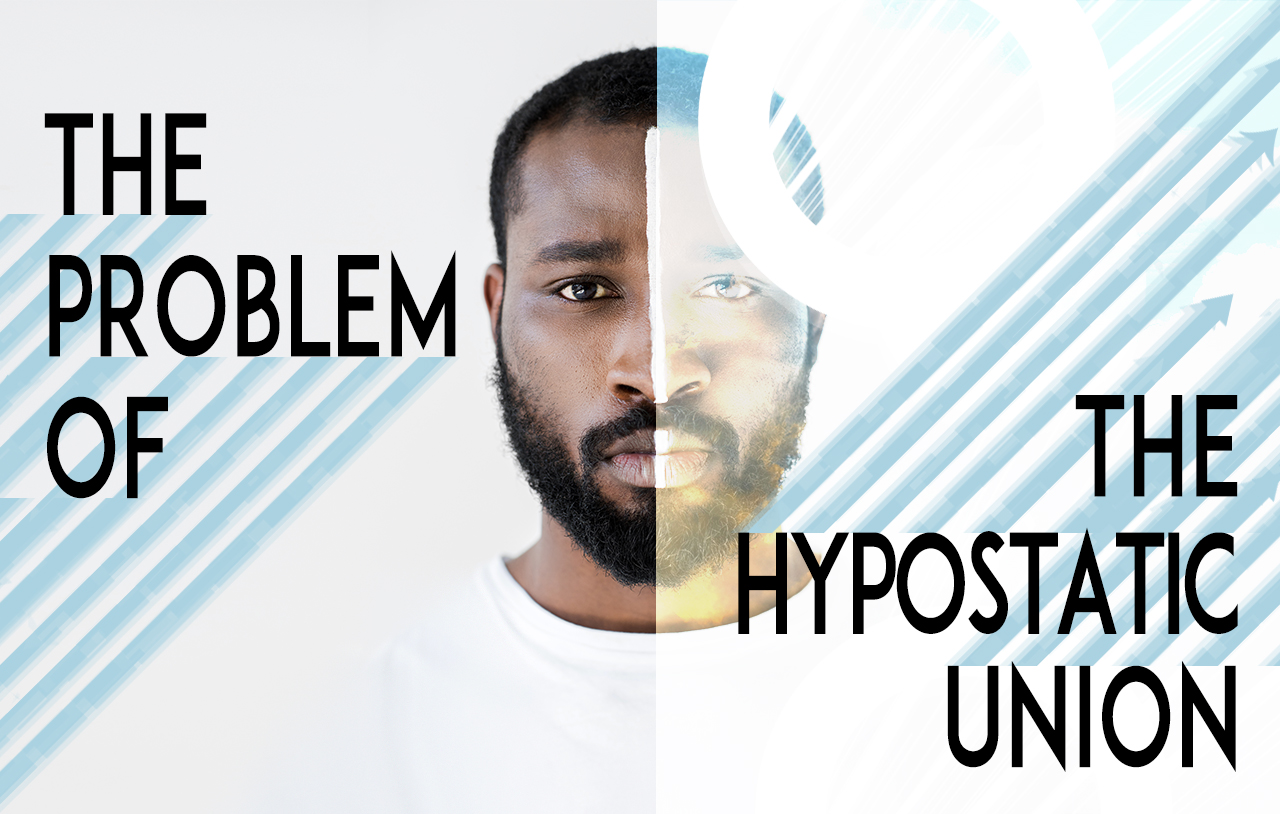|
This is a non-WLC article. When using resources from outside authors, we only publish the content that is 100% in harmony with the Bible and WLC current biblical beliefs. So such articles can be treated as if coming directly from WLC. We have been greatly blessed by the ministry of many servants of Yahuwah. But we do not advise our members to explore other works by these authors. Such works, we have excluded from publications because they contain errors. Sadly, we have yet to find a ministry that is error-free. If you are shocked by some non-WLC published content [articles/episodes], keep in mind Proverbs 4:18. Our understanding of His truth is evolving, as more light is shed on our pathway. We cherish truth more than life, and seek it wherever it may be found. |

The hypostatic union is the doctrine of Christology in which, in the Incarnation, one hypostasis had two distinct substances in him. This one person, the Son of God, had a human and divine nature. These natures are not mixed, like when someone crossbreeds two different plants and forms a new kind of plant, nor are they proper to two distinct persons. Still, these two natures subsist distinct from each other, united in one person.
It is important to remember that the hypostatic union became orthodox after the Trinitarian debates...
|
We need to understand how Trinitarians have come to their conclusions on this topic before we can analyze the problem. Trinitarians believe their reasoning is through deduction, whereas I think it is merely abduction, while others believe it to be an induction. These will all be framed in different ways through different epistemic approaches. However, we will see through the following syllogism the premises that a Trinitarian believes are necessarily true, which leads them to their deductive conclusion. It is important to remember that the hypostatic union became orthodox after the Trinitarian debates, and the proper deity of Christ was established in the mainstream church. The argument of the Trinity itself is not the same as the Incarnation. This must be understood. If your argument is just against the fact that Yahushua is God, and that's all you seek to prove, you are dealing with a different problem than the problem of the Incarnation. With this now in mind, let us look at their argument:
- Premise 1: The Son is fully divine.
- Premise 2. The Son of God became flesh.
- Premise 3. The divine nature cannot change; therefore, the divine nature never changed during the Incarnation period.
- Premise 4. The Son of God was man.
- Premise 5. The divine nature did not become human or mix with human nature because nature cannot change.
- Premise 6. The Son was only one person, the same as Yahushua Christ.
- Conclusion: The Son of God never changed in his divine nature, but the person of the Son gained a distinct human nature, which did not cause substantial change to his divine nature. The person had two distinct natures, one man and one divine, and we call this conclusion "the hypostatic union."
If it is true that Yahushua is fully divine, he must have the divine attributes, the essential properties of that nature. This would include immutability, the inability to change. This would also require infinitude and eternality...
|
If it is true that Yahushua is fully divine, he must have the divine attributes, the essential properties of that nature. This would include immutability, the inability to change. This would also require infinitude and eternality; the divine person constituted by that nature could not cease being this divine person. A divine person cannot stop being divine or stop existing. So, he could not lose his divine nature. This means that the Son was always God, and is always God, and that nature never changed and could never change, even in the Incarnation.
The question now becomes whether or not Yahushua was human. This is solved relatively quickly given the Gnostic assumption that he was not, which both John and Irenaeus wrote extensively against, defending Yahushua's humanity. On the one hand, Yahushua must be God; on the other hand, he must be man. Yet, the divine cannot change and become man, losing its divinity in mixing with human nature.
The hypostatic union is a conclusion met by the deduction logic which follows these premises. Yahushua must be God and man, yet his divinity did not change and, thus, remained separate and distinct from human nature. If this is the case, the only option we seem to have is the hypostatic union unless we wish to compromise on one of these presuppositions. We must admit that Yahushua was not God, not man, that he didn't become flesh, or that God is not unchanging. If we do not have a problem with these presuppositions and wish to assume them all, then the hypostatic union is the only explanation for Christology that meets all these needs. The only exceptions were those of Nestorianism and the Gnostics, who believed that there were two persons in Yahushua: a human and a divine person. This is where premise 6 comes in. Yahushua is only one person, not two.

The first problem of the hypostatic union is in the first premise. Whether or not Yahushua was God, however, this must not be confused with an argument on the hypostatic union itself. It's an argument with an assumed premise. This is generally where Unitarians spend their time, and below, I will give an argument for how I have argued in the past against this view.
We must admit that Yahushua was not God, not man, that he didn't become flesh, or that God is not unchanging.
|
The second problem is in premise 2. It is unclear to me that the Son did become flesh in the hypostatic union. It seems that "the Son who is fully God" didn't become flesh. A human man that was flesh was conceived in the womb of Mary, and the son of God came to that flesh. The Trinitarian must define what it means for him to have become flesh. Thomas Aquinas wrote extensively on this topic in his Summa Theologica and was one of the clearest Trinitarians who made this argument. However, to summarize his view, he believes that the divine nature came to "subsist" in the human body. It doesn't make meaningful sense to me that the Word became flesh; instead, it was just in the flesh. What is the difference between the incarnation and a demonic possession? A demon has its individuality and consciousness; it is a person of its own. It comes into another person, and now you have two persons and two natures in one body. If we assume that premise 6 is accurate, and in the hypostatic union, you do not have two persons in one body but two natures only, then it seems that the difference must be that the divine nature does not have its consciousness. It would be like the nature of a demon subsisting in a human but not having consciousness. Would we consider this demon to have "become flesh truly?"
This was the problem of Gnosticism. Cerinthus, in the first century, had written his gospel account, and in his works, he taught that Yahushua and Christ were two different persons. One person came down on another person at baptism, and there were two persons in the one body of Yahushua. This follows from the Gnostic views that the material realm is a fallen corruption made by the demiurge Yaldabaoth, and this descended being that came down from above was not made of this created realm but of a higher realm, of which this secret knowledge ("gnosis" in Greek) would cause us to escape from this realm. John writes against these views in many ways, both in his Gospel and epistles. We find traces of this in his statement, "the word became flesh" and "for God loved the world" (John 1:14, 3:16). But most straightforwardly against the Gnostics, John wrote his letters. The Gnostics are those he refers to as "antichrist." He says, "Who is the liar if it is not the one who denies that Yahushua is the Christ?" (1 John 2:22) The Gnostics denied that Yahushua and the Christ were the same thing. And, "For many deceivers have gone out into the world, refusing to confess the coming of Yahushua Christ in the flesh. Any such person is the deceiver and the antichrist" (2 John 1:7). These Gnostics denied the coming of Yahushua Christ in the flesh. They wished to confess Christ, but it went in some different way. Not being a man of flesh but something which came into the flesh.
When we look at the hypostatic union, if we wish to suppose that the divine nature was something from above that came into the flesh, are we not denying that it became flesh?
|
When we look at the hypostatic union, if we wish to suppose that the divine nature was something from above that came into the flesh, are we not denying that it became flesh? Is it accurate to say that the Word "became" flesh? In what way did "the Word," which is the second divine person of the Trinity with one nature, unchanging, "become" flesh? We can say that nature itself hasn't changed. But did something really "come to be" flesh at all? The problem of the Incarnation is whether a becoming of flesh took place and how exactly this can be said to have happened. They will say that the hypostasis became flesh, but nature did not change. But what we are strictly denying is that the divine indeed became man. How did this incarnation happen at the conception? What was conceived in Mary was a human that the divine came down upon. Did the divine become that human? Or was the human not something "separate?"
The third problem of the hypostatic union is whether or not he was one person. Looking back at the demonic possession problem of "problem 2" above, we have to ask, "Does the divine nature and divine person who came down from heaven have consciousness?" The answer is yes. It was a conscious decision and a humbling (Philippians 2:6-8). If there is consciousness in the divine person that came down, and the man Yahushua was a conscious being, was it the same divine consciousness he had, or did he have two? Would we consider a human being a living human if he never possessed consciousness? Generally, this is how we define "death." Even when the Trinitarian wishes to explain death and the "separation of the soul and body," they define a human death as the loss of the soul, which they believe is the seat of consciousness, because when that soul leaves to go to heaven, hell, Purgatory, limbo, or wherever they believe this soul goes, they think it retains and possesses this consciousness, while the human body does not. The human body, with a lack of consciousness, is "dead." Was Yahushua a dead human body possessed by a conscious divine mind? Or, does Yahushua have two minds, as some famous Incarnation theologians such as Thomas Morris have asserted? If we define "person" as something with a distinct mind, then we are referring to two persons, not one. According to the 3rd Council of Constantinople, Yahushua has two wills, one divine and one human. Would a dead human body have a will? Would a nature without a mind have a will?
My big argument against the problem of the hypostatic union is something I have variously called "the problem of the divine hiddenness in Christology." There's already talk about the "problem of God's hiddenness," essentially about why God doesn't make himself explicitly known to our five senses to everyone. This problem is different, so I've worded it specifically to a Christological problem. To assert that Yahushua has two natures in his ministry, we must either say that nature does nothing or does something. If the divine nature does nothing in his ministry, then we must question whether or not he even has it. We also must question whether or not he needed to be God if his divine nature did nothing. If the divine nature did something in his ministry, what did it do? The essence of my problem is how we detect the divine nature in Yahushua. We know that the Messiah must be born from the seed of Eve, Abraham, and David; we know he had to die for our sins; we know he is to be the king of Israel; we know he is to be elevated. For all of this to be true, he must be human. But what did he need to do to be God? Some argue that Yahushua had to be God to forgive sins. Yet, the apostles forgive sins (John 20:21-23). Some say that he must be God to die for our sins, and yet, God can't die.
The burden of proof on the Trinitarian is to explain what Yahushua did in his ministry (or any time post "Incarnation"), which he must have had two natures to do. What did Yahushua ever do that required him to be God and not a man who has God with him?
|
The burden of proof on the Trinitarian is to explain what Yahushua did in his ministry (or any time post "Incarnation"), which he must have had two natures to do. What did Yahushua ever do that required him to be God and not a man who has God with him? The hypostatic union runs the danger of being an unfalsifiable assertion. It also runs the risk of having nothing to substantiate it. If we see that everything Yahushua did, he did as a man anointed by Yahuwah, and nothing more, and he doesn't claim to be God, then we have evidence against the notion of the hypostatic union. If Yahushua had a genuinely divine nature in his ministry, it seemed utterly "hidden." It was not detected at all. So, how can we assert its existence? My argument is to ask them: "What did Yahushua do in his ministry that he could only do if he had a fully divine nature of his own?" They will give arguments that must be revised to stand up to reasoning. But if these arguments are exhausted and nothing at the end of the day supports this, we must rely solely on the church's authority and hope in church tradition. However, according to the church tradition, they claim that these scriptures support the idea that Yahushua is God in his Incarnation. Is their tradition correct, and yet their support for their tradition wrong? Is their tradition correct, and yet their interpretation of inspired scriptures incorrect?
I do not believe we can have a solid case for Yahushua even acting in two natures, nor needing to be God in his ministry to accomplish what he did. The concept collapses if so. Philippians 2:6 speaks about an emptying of something of Yahushua. Trinitarians take this to mean that he's emptied himself of something before the Incarnation, yet it can't be of his divine nature because he cannot cease to be divine. It seems obvious here that whatever Yahushua had, he lost it and set it aside for humility. This is strong evidence that Yahushua did not have a divine nature in his ministry. It places the Trinitarian into another uncomfortable situation.
This is a non-WLC article. Source: https://www.reddit.com/r/BiblicalUnitarian/comments/10i00x4/the_problem_of_the_hypostatic_union/
We have taken out from the original article all pagan names and titles of the Father and Son, and have replaced them with the original given names. Furthermore, we have restored in the Scriptures quoted the names of the Father and Son, as they were originally written by the inspired authors of the Bible. -WLC Team








